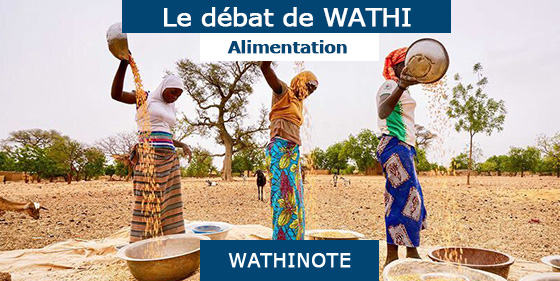

Author: Chinaza Arinzechukwu
Site of publication: Vanguard
Type of publication: Article
Date of publication: October 4, 2019
Food safety is a concept that involves handling, preparing and storing foods in a way that protects the food from being contaminated. It’s a shared responsibility of everyone involved in the food chain (farmers, manufacturers, processors, distributors, retailers, and consumers).
Foods can become unsafe when contaminated with illness-causing bacteria, viruses, parasites or chemicals and when consumed may cause food poisoning. Symptoms range from mild to severe, but commonly include nausea, vomiting, diarrhea, stomach cramps, and fever. In severe cases, food poisoning also called foodborne illness can lead to hospitalization or even death.
In the food supply chain, processors are obliged to operate effective food safety management systems, such as Hazard Analysis Critical Control Point (HACCP) and good manufacturing practice (GMP) which are supported by programs, training, monitoring, and evaluation to ensure consistent practices.
About 90 percent of school children buy street vended foods daily and we know that the majority of those who suffer from foodborne illnesses in Nigeria are children. Many parents due to their daily busy schedules in the workplaces hardly find time to properly prepare food for their young ones, hence, they purchase foods sold in the street
While huge attention is given to the food industries in this regard, little attention is given to the street food industry; yet street food supply is an important component of the food supply chain in Nigeria.
Street foods are ready-to-eat foods and beverages prepared and/or sold by vendors or hawkers in the streets, rural areas and urban centres. The street food industry plays an important socioeconomic role in Nigeria by meeting the daily food and nutritional demands of both rural and urban dwellers with a wide variety of foods that are relatively cheap and easily accessible. This sector also plays effective roles in creating jobs and responding to poverty and hunger.
In spite of the numerous advantages of street foods, studies show that this sector is a major vehicle for the transmission of severe and fatal diseases that are life-threatening. An average Nigerian buys ready-to-eat foods from the street vendors or from service establishments (restaurants, eatery and “Buka”) without any assurance that the food was hygienically prepared.
About 90 percent of school children buy street vended foods daily and we know that the majority of those who suffer from foodborne illnesses in Nigeria are children. Many parents due to their daily busy schedules in the workplaces hardly find time to properly prepare food for their young ones, hence, they purchase foods sold in the street.
The risk of food poisoning from street food remains threatening in Nigeria and one obvious risk factor is the vendors’ ignorance of the causes of foodborne illnesses. Street food vendors are often unlicensed, untrained in food safety, food hygiene, and sanitation, and work under unsanitary conditions.
Food safety is everyone’s business and that is why the United Nations has set out the 7th of June to be the World Food Safety Day. Therefore, there’s a need to inclusively enjoin everyone into adopting the food safety behaviour and practices as this will significantly contribute to achieving sustainable development goals, especially those relating to eradicating hunger, reducing poverty and improving the wellbeing of the citizens.
Integration of safety approaches (such as good manufacturing practices, hazard analysis critical control points and good hygiene practices) that will permeate the entire chain of street food would significantly reduce risks associated with street vended foods
The Food Safety and Applied Nutrition Directorate at NAFDAC whose role is to ensure that food manufactured, imported, exported, distributed and sold in Nigeria meet the standard of food safety have focused on the formal food sectors and given little attention to the informal sector.
Being a major source of Nigeria’s food supply, it is, therefore, necessary that systems be put in place to ensure that street food handlers and vendors remain aware of all procedures needed to maintain the safety and suitability of food.
Integration of safety approaches (such as good manufacturing practices, hazard analysis critical control points and good hygiene practices) that will permeate the entire chain of street food would significantly reduce risks associated with street vended foods.
According to the Food and Agricultural Organization, the government should ensure safe and nutritious food for all. There is need for the government to establish effective street food projects and encourage active collaboration of stakeholders from local authorities, consumer associations, professional bodies, national authorities, and international organizations at regional levels to properly develop food safety public health policies, disseminate good practices and promote a common strategy in order to alleviate the public health consequences of foodborne illnesses and engender a safer and healthier society.
Les Wathinotes sont soit des résumés de publications sélectionnées par WATHI, conformes aux résumés originaux, soit des versions modifiées des résumés originaux, soit des extraits choisis par WATHI compte tenu de leur pertinence par rapport au thème du Débat. Lorsque les publications et leurs résumés ne sont disponibles qu’en français ou en anglais, WATHI se charge de la traduction des extraits choisis dans l’autre langue. Toutes les Wathinotes renvoient aux publications originales et intégrales qui ne sont pas hébergées par le site de WATHI, et sont destinées à promouvoir la lecture de ces documents, fruit du travail de recherche d’universitaires et d’experts.
The Wathinotes are either original abstracts of publications selected by WATHI, modified original summaries or publication quotes selected for their relevance for the theme of the Debate. When publications and abstracts are only available either in French or in English, the translation is done by WATHI. All the Wathinotes link to the original and integral publications that are not hosted on the WATHI website. WATHI participates to the promotion of these documents that have been written by university professors and experts
